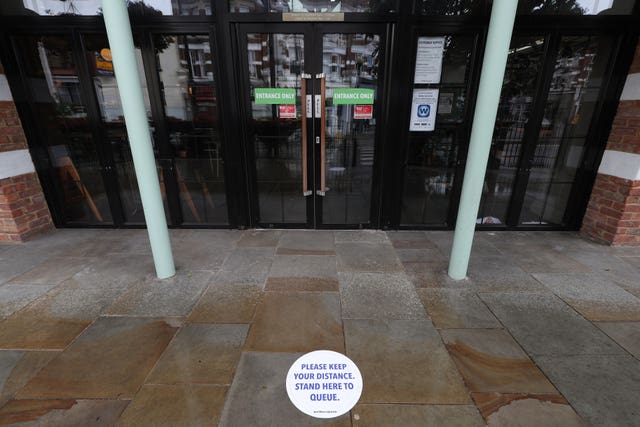Disabled people could become ‘even more isolated’ as lockdown eases
Many of the social-distancing measures introduced are leaving people with disabilities feeling anxious – and potentially choosing to stay home.

Disabled people are at risk of becoming “even more isolated” as the world implements the social-distancing measures needed to open up parts of the economy.
New guidelines coming into force on Saturday mean pubs, restaurants, hotels, hairdressers and more will be open in England for the first time since March.
But some of the measures put in place to ensure social distancing is maintained – including increased use of tables and chairs on pavements by cafes – risk making life more difficult for some.
Kate Stanforth, who uses a wheelchair, told the PA news agency: “Things like access have gone back massively.

“It just means it’s going to be so challenging for us.”
Ms Stanforth, a social media manager from Stocksfield in Northumberland who also teaches dance in her chair, has ME, among a range of conditions including asthma, Ehlers-Danlos syndrome and mast cell activation disorder.
She has been shielding at home since March, and the fatigue caused by her ME means it can be difficult for her to leave the house for extended periods.
“For someone with limited energy, when you go out and you have to queue for half an hour to get into a shop, I can only go out for half an hour to an hour,” she said.
“The world has completely changed so I might not be able to do the things I used to before. I’m anxious about it.”
According to Fazilet Hadi, policy manager at Disability Rights UK, the feelings of anxiety about Saturday’s new guidelines will be shared by many.

“It could pose problems definitely for blind and partially sighted people, people with learning disabilities, because of maybe difficulties in understanding rules and rules changing, and wheelchair users as well.”
Ms Hadi said guidance to business owners from the Department for Business, Energy and Industrial Strategy includes advice on making reasonable adjustments for people with disabilities.
But she said a lack of communication on the issue can leave some disabled people in a difficult position.
“That subtlety of message sometimes gets lost so I suppose the danger is disabled people might feel anxious or worried about whether they’re seen as breaking the rules when they can’t abide by them in the same way,” she said.
Maureen Goodall, who has limited tunnel vision, has found herself on the receiving end of anger from members of the public when they perceived she was not following social distancing guidelines.
Ms Goodall said: “I struggle to social distance. I can’t see where people are.
“I’ve been pushed into the road because they wouldn’t move for me – I found that quite scary, that’s happened twice.”

She has even been criticised by a checkout assistant for standing in the wrong place.
“I had my white stick in my hand and she kept saying ‘you need to stand over there’,” Ms Goodall, who is from Hatfield, said. “To me, over there, it’s anywhere – it could be on the moon. I can’t see where she’s pointing.”
She said an increase in tables and chairs outside cafes and pubs, which is expected when they reopen on Saturday, is a “nightmare” for her, and the new guidelines will make it harder for her to go out safely.
“It’s making me more anxious and more nervous knowing that stuff is going to be out there,” she said.
While much of the country is preparing for life to get closer to normal over the next few days, Ms Goodall feels like the world is moving on without her.
“I feel like my independence is being slowly taken away from me,” she said. “Everyone else is going to go out and have fun, and I’m not.”
Ms Stanforth believes many will decide the fresh obstacles will mean many decide it is easier to stay inside while the rest of the world experiences restored freedoms.
“Disabled people are going to be even more isolated than they were before,” she said.





